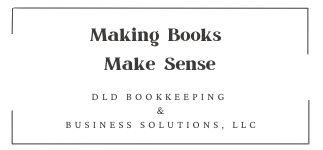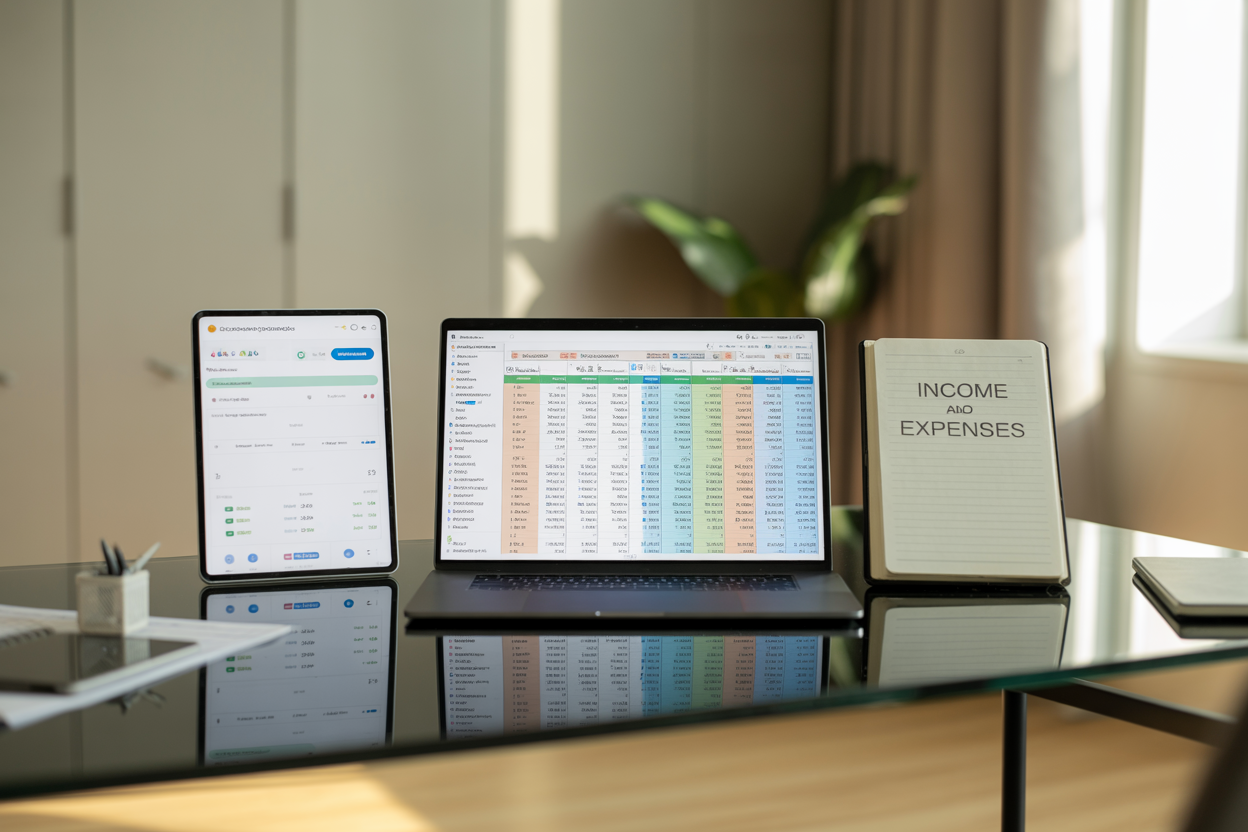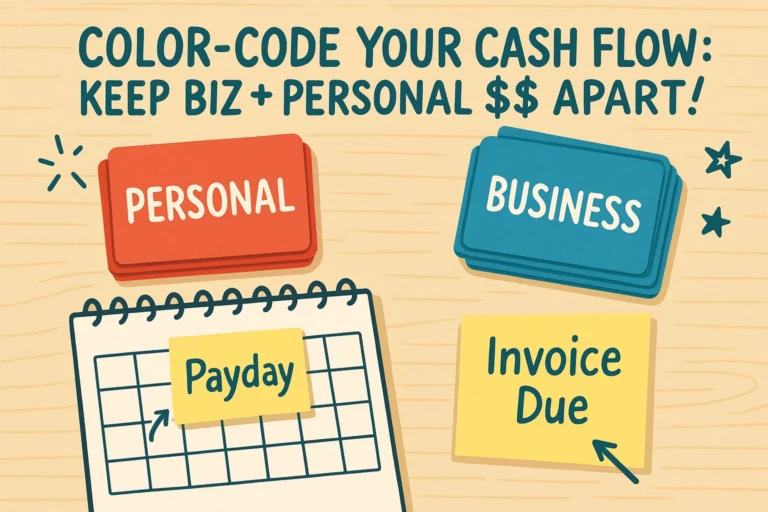22 Common DIY Bookkeeping Questions Business Owners Ask (and the Answers You Need!)
If you’re a small business owner trying to DIY bookkeeping, you’re not alone. Many people start out managing their books themselves, or not doing it at all (yikes!).
Whether you are trying to to save money, maintain control, or simply understand the financial side of your business, I am here to help.
But doing your own bookkeeping can lead to a lot of questions. Below are the most common questions asked by business owners just like you—and answers to help you move forward with confidence.
Getting Started with DIY Bookkeeping
1. What is bookkeeping, and how is it different from accounting?
Bookkeeping is the day-to-day tracking of income and expenses. Accounting takes it a step further—analyzing, summarizing, and preparing financial reports.
2. Do I really need bookkeeping if I’m just starting out?
Yes! Even simple tracking from the beginning helps you stay organized, prep for taxes, and understand your cash flow.
At the absolute bare minimum – keep a spreadsheet of your income and expenses. Keeping a running balance with actual bookkeeping is really best. There are free options, it doesn’t have to cost you money! How to Set Up a Simple Bookkeeping System — Even If You Hate Numbers
3. How do I set up my books for a new small business?
Start by opening a separate business bank account, choosing a bookkeeping method (cash or accrual – you really should be using cash to get started unless a pro tells you otherwise), and selecting a tool or spreadsheet to track your numbers.
4. What bookkeeping method should I use—cash or accrual?
Most small businesses start with cash basis (record income/expenses when money changes hands). Accrual is more complex but offers a clearer picture if you invoice or have bills due later.
If you are using accrual accounting, you really should be using actual bookkeeping software versus a spreadsheet.
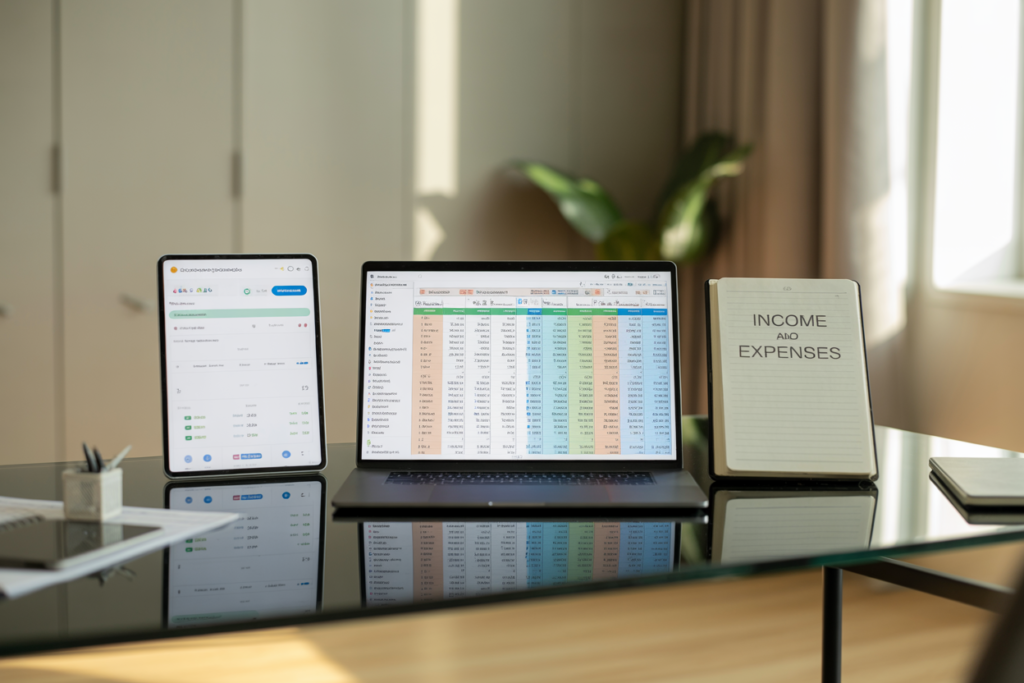
Tools & Software
5. What’s the best free or low-cost bookkeeping software?
Popular options include Wave (free), QuickBooks , Xero, or even Google Sheets if you’re comfortable creating your own system.
Most software options offer a free trial so you can experiment and see what works best for you.
6. Can I use Excel or Google Sheets for bookkeeping?
Absolutely! Many DIYers start with spreadsheets. Just make sure you’re consistent and organized. Templates can help.
7. How do I choose between QuickBooks, Xero, and Wave?
Consider your business needs: Wave is best for basic needs, Xero is great for collaboration, and QuickBooks has the most features, but can be more expensive. QuickBooks also makes changes to the software very frequently which can be confusing.
I do NOT recommend using QuickBooks for invoicing or paying your taxes. Tracking these items in QuickBooks is fine, but I don’t recommend using them to make or receive payments.
Comparing Bookkeeping Software offers more details on the differences between the bookkeeping software options.
Tracking Income & Expenses
8. How do I track my business income and expenses properly?
Log every transaction—use categories, save receipts, and match bank deposits to income sources.
I like to snap a picture of my receipts for a digital backup. Many software options offer built-in receipt tracking or you can look into something like Hubdoc for tracking receipts.
Another option, if you have a bunch of paper receipts, is using a scanner like SnapScan.
9. What counts as a business expense or tax deduction?
Any ordinary and necessary expense related to your business—like office supplies, advertising, software, or professional services (taxes, lawyer, IT support).
10. Do I need to keep receipts for everything?
Yes, especially for expenses over $75. Digital backups work too. The IRS expects clear records.
11. How do I record mileage, meals, or home office expenses?
Use mileage tracking apps, document business meals carefully, and follow IRS guidelines for home office deductions.
I highly recommend referring to the IRS guidelines for mileage in order to make sure you are compliant and can deduct the mileage. https://www.irs.gov/taxtopics/tc510
There are strict guidelines on deducting meals as well. Not all meals can be deducted. You still want to record these expenses in your books, but just because it is in your books, doesn’t mean it will be a tax expense.
Day-to-Day Bookkeeping Tasks
12. How often should I update my books?
Weekly is ideal, but monthly at a minimum. Set aside time on your calendar to stay consistent – if you can do it daily, even better.
In certain situations, you might not want to add items daily. For example if you have a lot of small transactions, say from online sales or cafe sales, you may want to add these as a daily or weekly summary. You should be able to get the exact totals from your POS (point of sale) system or payment processor.
13. What does reconciling my bank account mean?
It means comparing your bookkeeping records to your bank statement to make sure everything matches. This helps catch errors early.
You want to make sure everything on your bank statements is logged in your bookkeeping. This also helps you catch errors like being charged for something incorrectly or a duplicated transaction.
14. What’s the best way to organize receipts and records?
Use folders (digital or physical), apps like Expensify, or store them by category and month. Consistency matters more than the method.
Invoices & Payments
15. How do I create and track invoices?
Use your bookkeeping software or templates. Number invoices, include payment terms, and track who’s paid.
16. What should I do about clients who don’t pay on time?
Follow up with friendly reminders, charge late fees (if noted), and consider requiring deposits or payment upfront.
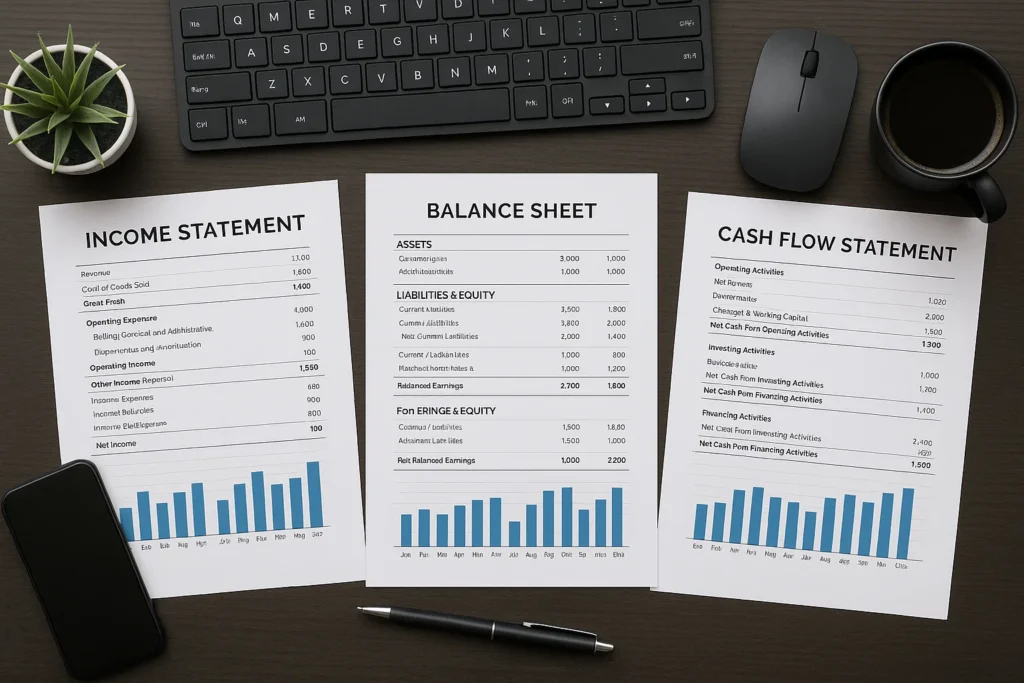
Financial Statements & Taxes
17. How do I prepare a profit and loss statement?
List all income and subtract all expenses over a specific period. Many software tools generate this for you.
18. What reports should I look at regularly to understand my business?
Your Income Statement (also called a Profit & Loss or P&L) , Balance Sheet, and Cash Flow Statement are the big three.
The income statement shows all income and expenses for your business.
The balance sheet shows the balances for all accounts.
The cash flow statement shows the actual movement of cash.
19. How do I get ready for tax season?
Track income/expenses throughout the year, categorize everything, and save receipts. Work with a pro if you’re unsure. If you are keeping up with updating your bookkeeping at least weekly, then you will have everything you need at tax time.
A simple Daily Bookkeeping Routine for Your Small Business will show you exactly what you need to track.
20. What’s the difference between a write-off and a refund?
A write-off reduces your taxable income—it doesn’t mean you get the money back. You save taxes on the expense, not equal to the expense.
Knowing When to Get Help
21. When should I hire a bookkeeper or accountant?
If you’re overwhelmed, your business is growing, or you’re making mistakes, it’s time to bring in help. When Should You Hire a Bookkeeper?
22. How do I fix mistakes in my books?
Review transactions line-by-line, compare with bank statements, and correct errors. Don’t be afraid to ask a pro for a clean-up session.
Let’s Wrap It Up
DIY bookkeeping is entirely possible with the right tools, knowledge, and consistency. These common questions show that you’re not alone—every business owner starts somewhere.
If you need help, make sure to reach out to a pro – I am always here to help you. If you wait until everything is a big mess, clean up bookkeeping can end up costing a lot more than having help from the start.
